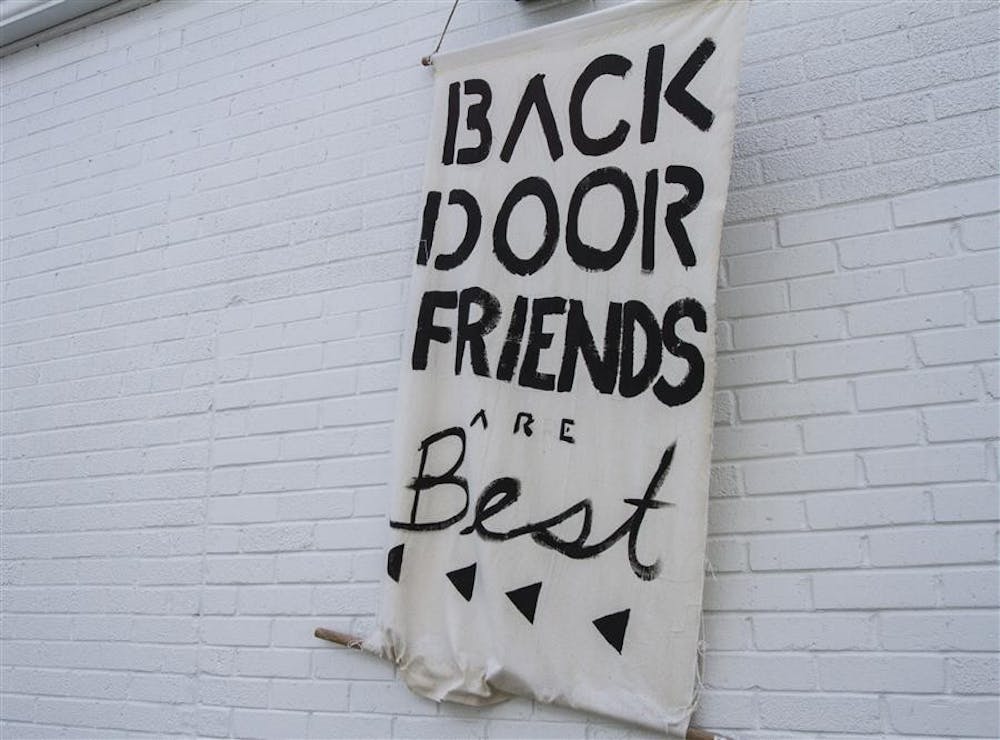Despite a step in the right direction, a lot of work is yet to be done.
That’s been the response of many same-sex marriage supporters since the Defense Of Marriage Act and Proposition 8 rulings came from Supreme Court June 26.
And it’s an understatement to Sara Gardner, co-owner of The Back Door, a queer bar opened in Bloomington this year.
She said she thinks the court sold people short.
Because of the court’s decision to make same-sex marriage a matter of states’ rights, some couples are missing out on federal benefits others will soon start to receive.
“It’s like (the Supreme Court) didn’t really want to deal with it,” Gardner said. “They kind of just pushed it onto the states.”
Although she said she isn’t fully content with the decisions, Gardner acknowledges the move to outlaw a key part of DOMA as a sign of much-needed progress.
Gardner said she remembers Bloomington High School South in the 1980s, a place where being queer wasn’t accepted kindly and wasn’t to be talked about.
It continued into college. Her first girlfriend was bullied in her sorority during their freshman year at IU because she was gay.
To celebrate the small but meaningful changes she’s seen in Bloomington, The Back Door was open the Wednesday the Supreme Court rulings broke the news, even though it was a night the bar isn’t usually open.
But although Monroe County has seen many changes of heart on queer issues, the fact Indiana is a Republican state might hold same-sex couples in Bloomington behind.
After growing up in Bloomington and owning a popular queer bar in town, Gardner said she knows a lot of couples eager for the day marriage equality becomes law in Indiana.
But she said she knows some that aren’t interested in the idea of getting married at all.
She said it’s important to remember the history of what marriage means, and how it’s still steeped in tradition today.
“Marriage used to be a business deal,” Gardner said. “There were dowries, women were considered property. It’s changed, but marriage is still a patriarchal institution and a lot of gay couples don’t want anything to do with it anyway.”
But they still want the right to it, for equality’s sake, she said.
“Marriage is a kind of symbolic segue to what all of us really want,” Gardner said. “Whether we want to get married or not, we just want to be treated equal.”
And even when legislation is passed, she fears struggles may still exist.
“How do you get past workplace discrimination? Stuff like that’s hard to prove,” Gardner said. “Women and blacks still deal with that. History moves slow.”
So while Gardner and Olive Lykins, the other co-owner of The Back Door, wait with the queer community in Bloomington for more progress, they’re trying to make some of their own.
Not just owners of a bar, the two are activists.
Lykins, who worked on special events planning for MTV, uses his experience to get The Back Door involved with the community.
They’ve networked with WFHB and Secretly Canadian, and they’ve made friends with the Kinsey Institute for Research in Sex, Gender and Reproduction, whose donated artwork and paraphernalia adorn the zebra-striped bar’s walls.
In March they organized a standing-room-only meeting for the Bloomington Sex Salon, a monthly community-based speaker series on all things sex.
And with sights set bigger than that, they’re in the process of getting the city to have its own Pride festival.
Gardner and Lykins said they don’t want to just provide a haven for the queer community. They want to enrich it.
And to that effort, they said the community has been more than receptive.
“If Bloomington were a state, this would all be old news,” Gardner said. “But just because we have it figured out, doesn’t mean we’re going to keep quiet. Everyone needs to be involved.”
Justice for all?

Get stories like this in your inbox
Subscribe





